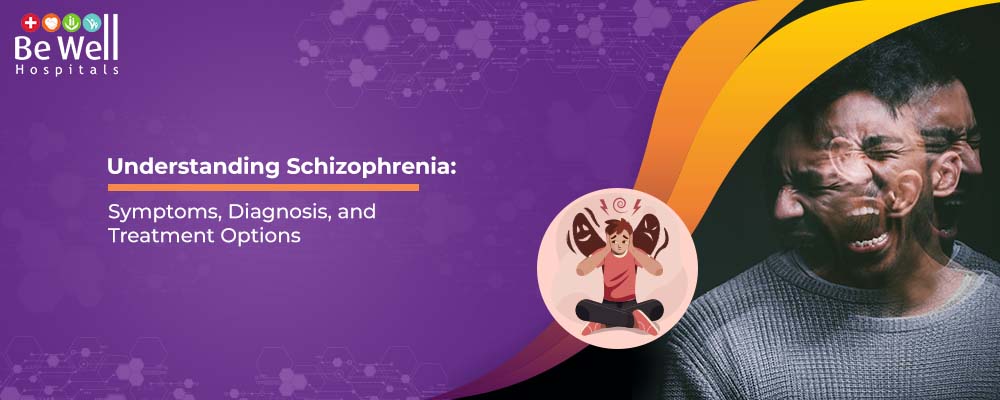Understanding Schizophrenia: Symptoms, Diagnosis, and Treatment Options

Introduction
Schizophrenia is a complex and often misunderstood mental health disorder characterized by profound disruptions in thought processes, perceptions, and emotional responsiveness. In this blog, we aim to provide a comprehensive overview of schizophrenia, beginning with a detailed examination of its symptoms to better recognize and address the disorder. We will explore the diagnostic process, shedding light on how healthcare professionals identify and differentiate schizophrenia from other mental health conditions. Additionally, we will discuss various treatment options available, including medications and therapeutic interventions, to help manage the symptoms and improve the quality of life for individuals living with schizophrenia. By equipping ourselves with knowledge about this condition, we can enhance our understanding, reduce stigma, and promote more effective support for those in need.
What is Schizophrenia?
Schizophrenia is a chronic and severe mental disorder that profoundly affects an individual's thoughts, emotions, and behaviors. It is characterized by symptoms such as hallucinations, delusions, disorganized thinking, and impaired cognitive function. Schizophrenia often manifests in late adolescence or early adulthood and can lead to significant challenges in managing daily life, maintaining relationships, and fulfilling personal and professional responsibilities. The prevalence of schizophrenia is estimated to be about 1% of the global population, affecting both men and women, although men often experience symptoms earlier than women. The impact of schizophrenia extends beyond the individual, deeply affecting their families and caregivers. The disorder can lead to social isolation, financial strain, and emotional distress, highlighting the need for comprehensive support systems and effective treatment strategies. Understanding the scope and consequences of schizophrenia is essential for providing adequate care and fostering empathy and support for those affected.
Symptoms of Schizophrenia
Schizophrenia is marked by a range of symptoms that can be categorized into positive, negative, and cognitive types, each impacting an individual's functioning in different ways.
Positive Symptoms:Negative Symptoms:
Cognitive Symptoms:
These symptoms collectively disrupt an individual's ability to function normally and significantly impact their quality of life.
Diagnosis of Schizophrenia
The diagnosis of schizophrenia involves a meticulous process guided by established diagnostic criteria and clinical assessments to ensure accuracy and appropriate treatment.
This rigorous approach ensures that schizophrenia is accurately diagnosed, which is crucial for developing an effective treatment plan and providing the necessary support to the individual.
Treatment Options for Schizophrenia
Effective treatment for schizophrenia involves a comprehensive approach, including medication, psychotherapy, supportive services, and lifestyle modifications to enhance overall functioning.
By integrating these treatment options, individuals with schizophrenia can achieve better symptom management, improved daily functioning, and a higher quality of life.
Living with Schizophrenia
Living with schizophrenia involves navigating daily challenges while striving to maintain a good quality of life.
By focusing on these areas, individuals with schizophrenia can improve their daily lives, leverage available resources for support, and work towards reducing the stigma that often surrounds the disorder.
Conclusion
Understanding schizophrenia is crucial for effective management and support. We’ve explored the key aspects of this complex disorder, including its symptoms, diagnosis, and treatment options. Emphasizing the importance of early intervention and ongoing support is vital for improving outcomes and enhancing the quality of life for those affected. We encourage individuals to seek help promptly and urge readers to foster greater understanding and support for people living with schizophrenia.
For comprehensive care and support, visit Be Well Hospitals Psychiatry Department or call 9698 300 300 to book appointment with our psychiatrists.
